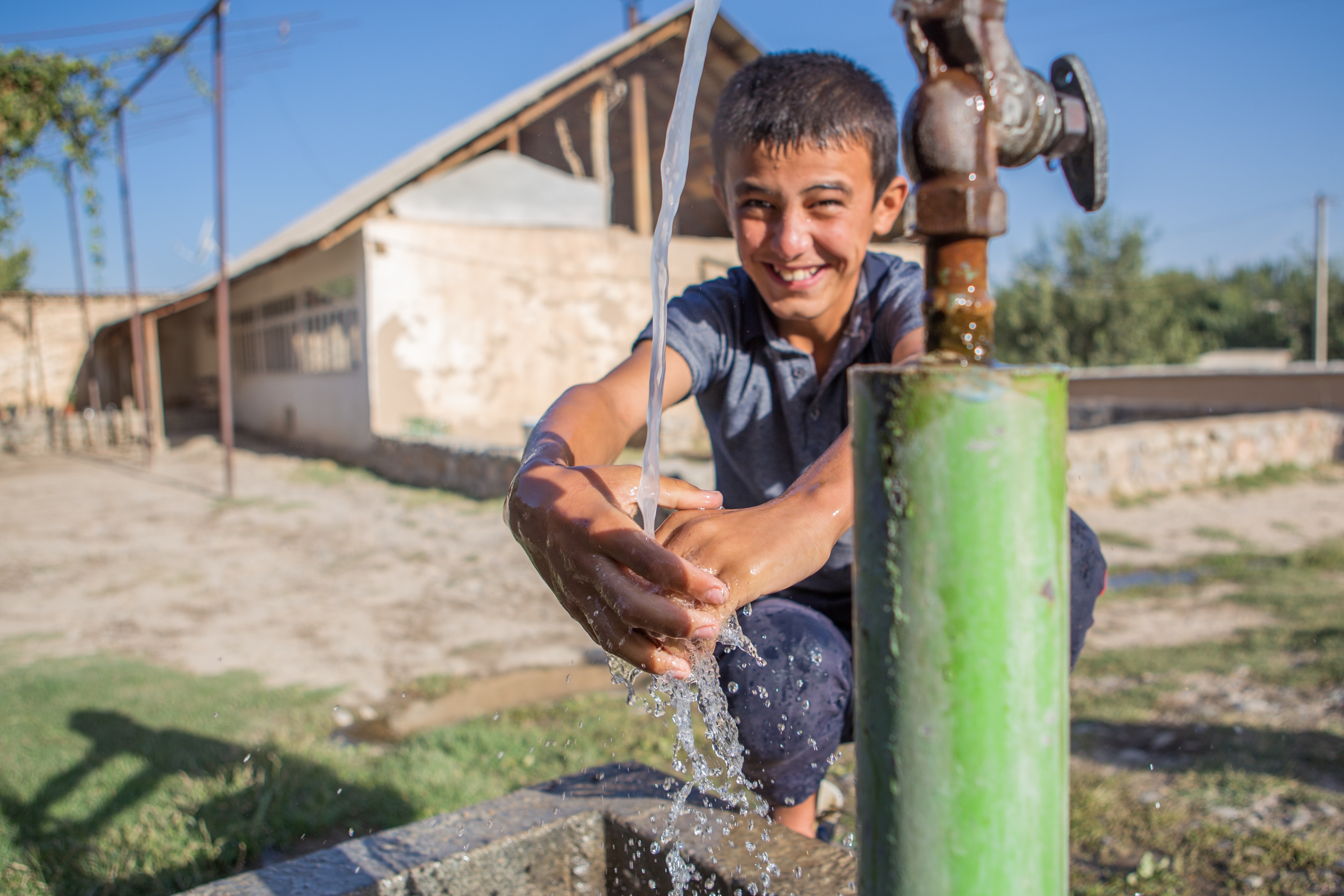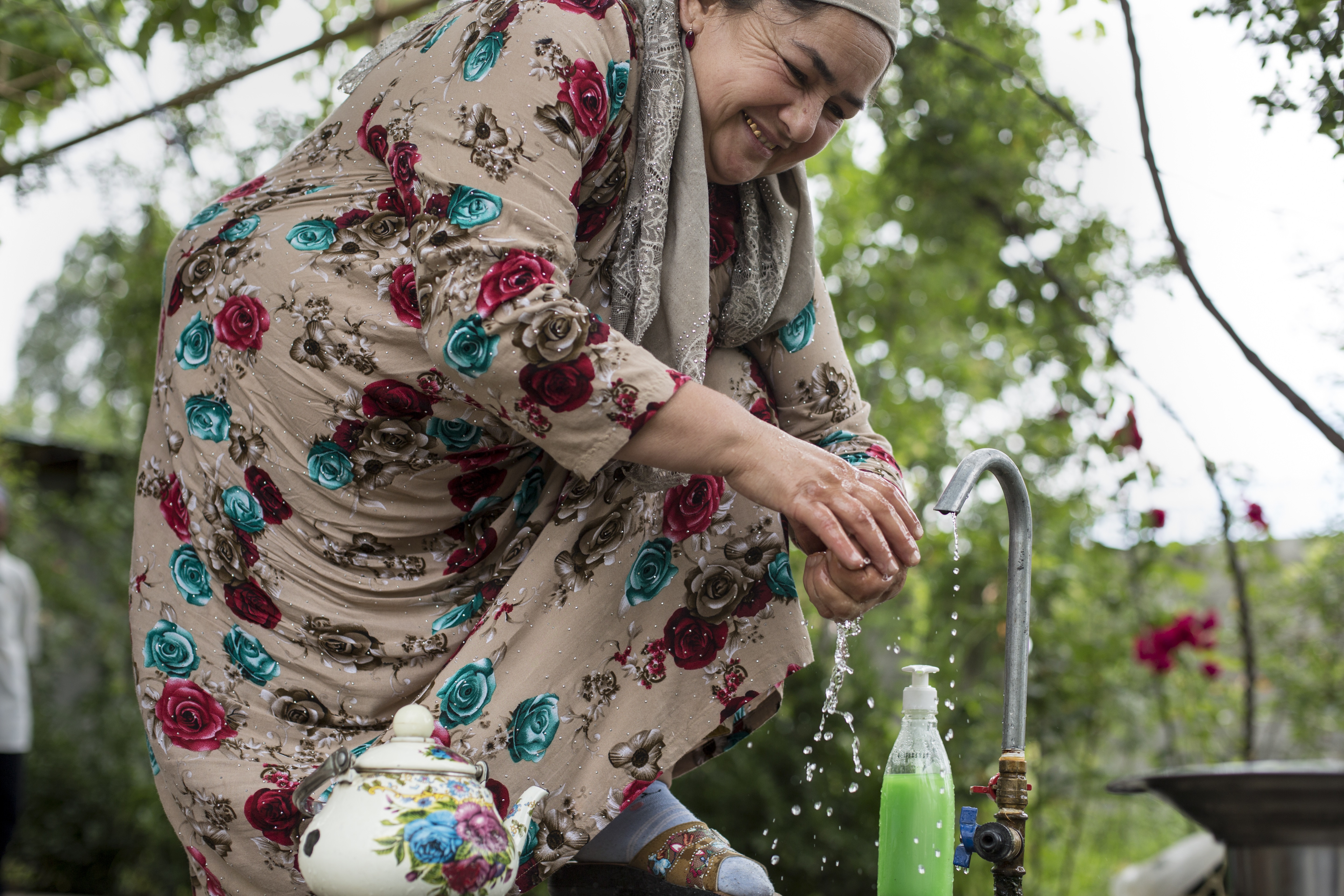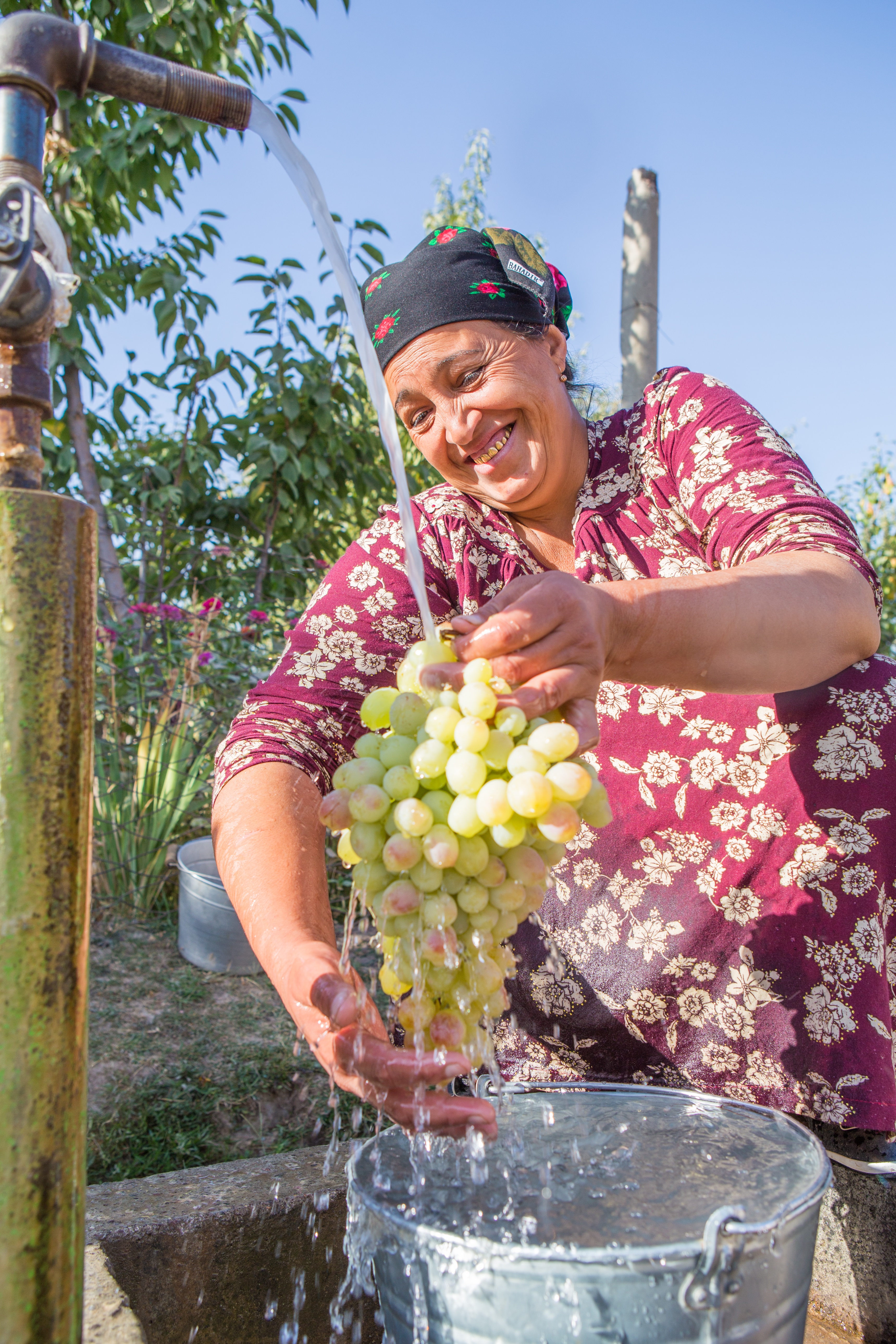SDC Division: Swiss cooperation with Eastern Europe
Country: Tajikistan
Duration: 2009-2022
Contact: dushanbe@eda.admin.ch

The
Tajikistan Water Supply and Sanitation (TajWSS) Project was implemented between 2009-2022 by Oxfam GB in partnership with the United Nations Development Programme (UNDP) and the Consumers Union (CU) of Tajikistan, with funding from the Swiss Agency for Development and Cooperation (SDC).
The project's overall goal was to achieve a
“healthier population as a result of sustained access to safe drinking water and sanitation services and improved hygiene behaviour". It aimed at improving public health through enhancing sustainability of decentralised drinking water and sanitation services and institutional development in Tajikistan, with specific targeted interventions in Rudaki, Muminabad and Kulob districts. The project provided Water, Sanitation and Hygiene (WASH) services directly to people in those districts, improved service delivery, and influenced and strengthened government systems through its upstream policy work (i.e. bringing systemic changes to the WASH sector). The project was an excellent opportunity to demonstrate to government and key decision makers, in a highly participatory manner, how water and sanitation gains can become permanent.
The project implementation led to the following three outcomes linked to access to drinking water, strengthening good governance and social accountability, as well as policy development and lobbying at the national level:
-
Outcome 1: People benefit from innovative and sustainable water and sanitation services and improved hygiene practices (People)
-
Outcome 2: Water governance bodies effectively manage drinking water supply and sanitation systems (Systems)
-
Outcome 3: Conducive policy environment at national level allows for effective management of drinking water and sanitation systems in rural areas (Policy).

Phase I (2009-2013) was primarily concerned with laying the foundation for coordinated efforts in the WASH sector. Activities included engagement with the government, identifying target communities, providing access to basic WASH services and establishing a funding mechanism in target districts.
The project established the TajWSS Network of Stakeholders in 2009 to help coordinate the water sector reform in partnership with the government. It engaged all stakeholders to implement effective cooperation in exchange for ideas and best practices. This helped the Inter-Ministerial Coordination Council (IMCC) to turn into a policy advocacy forum to lobby for reforms among high-level government agencies and international donors. The TajWSS Network provided a space for a range of stakeholders with different interests to discuss and develop solutions to WASH-related issues. The project also piloted a
Water Trust Fund to promote increased investment and financial sustainability in the sector. The project impacted more than 24,000 rural people through 8 new water supply systems serving 11 villages and 1 town.
Phase II (2013- 2018) focused on expanding access to WASH services across Rudaki, Muminobad and Kulob districts. In this phase, the project shifted to demand-driven solutions, where market-based programming was employed to ensure users had more ownership over assets including private household water connections, as well as improvement in terms of access to sanitation facilities in public institutions. The project developed water governance models suitable to the rural context and applied water tariffs affordable for users with private connections. The Water Trust Fund became functional and was an effective tool in selecting villages and allocating government funding. As a result of this phase, a total of 24,103 people (12,234 women, 51% women) gained improved access to drinking water supply systems in 11 villages; sanitation and hygiene promotion benefitted 6,632 school children and staff in 7 schools.
WASH improvements were also carried out in schools and health care facilities. Of the 7 water supply systems constructed, six are operated and managed through Community Based Organisations (CBOs), with one operated through through a district state water utility (KMK Vodokanal). In this phase, the project in partnership with the Ministry of Energy and Water Resources (through an established Thematic Working Group) has initiated the update of the “Law on Drinking Water". This was based on lessons drawn from the construction and management of drinking water supply and wastewater treatment facilities, that triggered a simplification of procedures, authorisation of local Water User Associations (WUAs) as the entities to operate the assets, and establishment of state control over the functionality of the service. In addition, the project initiated formative research on the feasibility of sanitation marketing in Tajikistan that supported new initiatives in the sanitation sector under Phase III. This process also led to the need for developing the State Sanitation Plan together with the Ministry of Health and Social Protection of Population to highlight short-term and long-term interventions to improve sanitation policy at national level.

Under Phase III (2018-2022), the focus of TajWSS has been to strengthen the “systems" and “service sustainability" component of WASH service delivery. This was meant to enhance the way services are operated and maintained through community-based maintenance, with corresponding improvements in technical, managerial and financial support provided by mandated institutions. Hence, the sustainability approaches applied in Phases I and II were meant to reach maturity. Phase III focused on strengthening the overall sanitation approach including household-level sanitation, wastewater management and sanitation marketing. More than 88,000 rural and peri-urban people (46,000 women/ 52%) were provided with access to clean and affordable water services and wastewater treatment facilities. One water supply system was built for 4 villages, and 2 district level hospitals were provided with Decentralised Wastewater Treatment System (DEWATS). At national level, the project contributed to the new edition of the “Law on Drinking Water and Wastewater" in 2019 and to more than 10 sub-laws strengthening the execution mechanism by the state agencies. Moreover, the project developed a full-cost recovery tariff calculation methodology for water supply systems and simplified the norms and standards for the design and construction of WASH facilities in Tajikistan. These are now a valuable foundation for future WASH projects to develop economically viable water supply systems that will be based on cost-recovery and demand-driven aspects. The project has also drafted a State Sanitation Plan with recommendations for the Ministry of Health and Social Protection of Population to develop its intervention strategy together with other stakeholders in the sanitation sector.
Videos from Phase III
TajWSS Project 2022
World Water Day in Tajikistan (2022)
Tajikistan Water Supply and Sanitation Network (2022)
Key documents from Phase 1:
Key documents from Phase 2
Key documents from Phase 3

Photo credits: SDC, TajWSS Project (2021)
